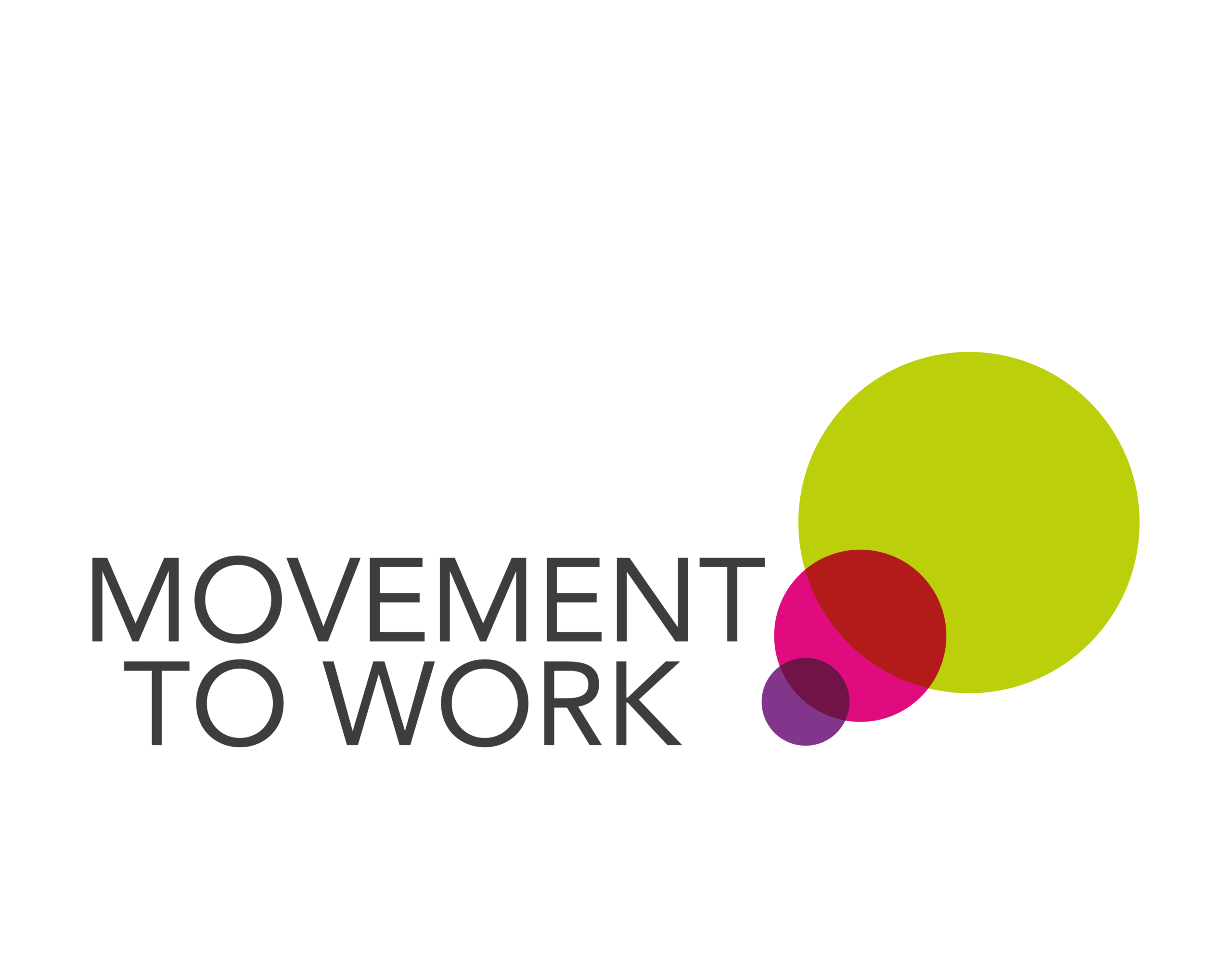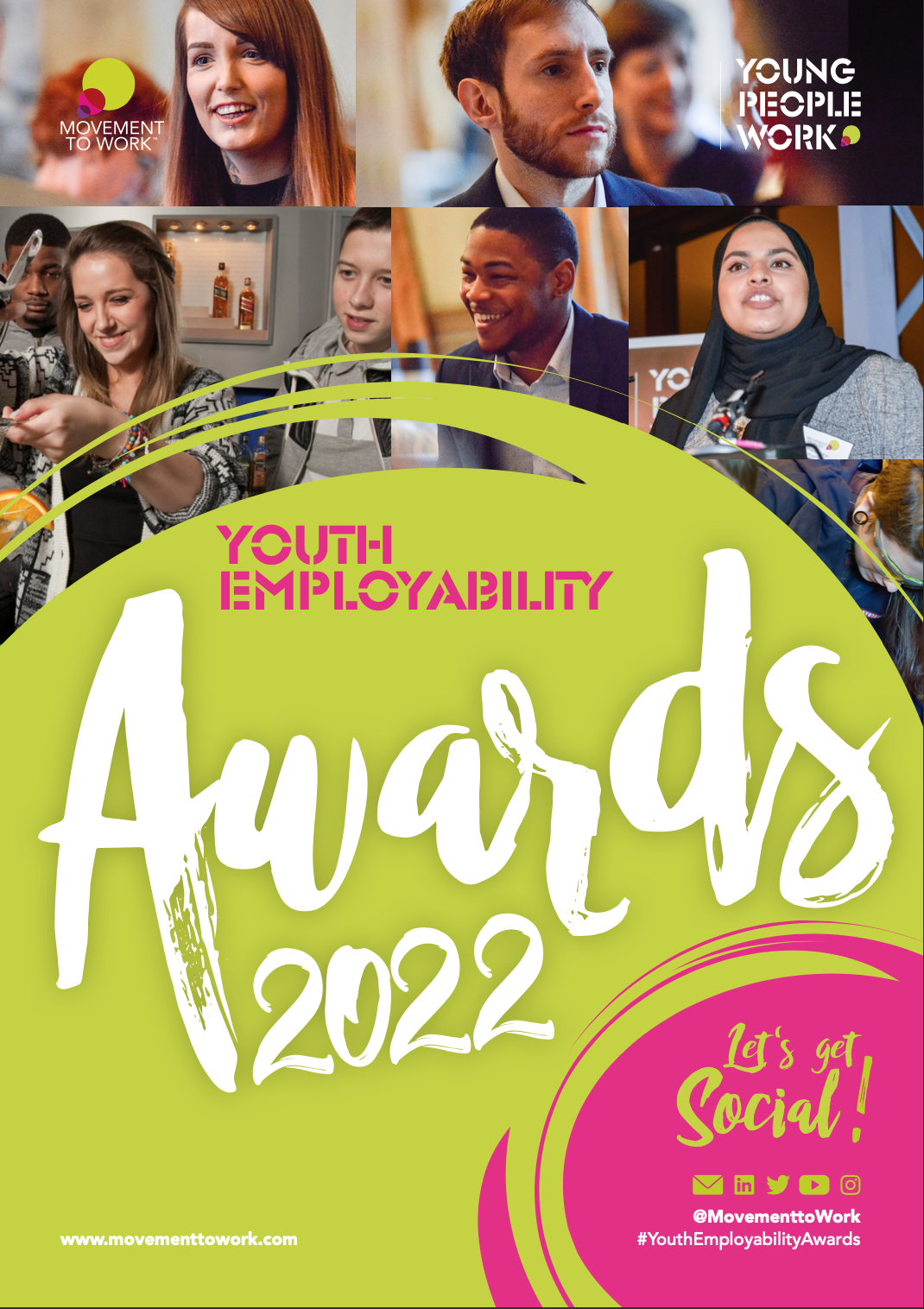 Meet Sophie Fletcher – Movement to Work’s Administrative Assistant. Sophie joined Movement to Work in December 2021 and is on a placement facilitated by Catch22 and funded by NCS UK Year of Service. We put a few key questions to Sophie so that our network could get to know our youngest hire to date…
Meet Sophie Fletcher – Movement to Work’s Administrative Assistant. Sophie joined Movement to Work in December 2021 and is on a placement facilitated by Catch22 and funded by NCS UK Year of Service. We put a few key questions to Sophie so that our network could get to know our youngest hire to date…
Tell us a bit about yourself…
I’m Sophie and I’m 22 years old. After starting with Movement to Work in December, I have learned so much I didn’t know before. This is my second admin job after mainly retail roles and it’s a whole sector I haven’t thought too much about before. The team works really well together and in my first few days here I felt more supported than any other job I’ve had. It’s very clear the people here truly care about what they do and the thousands of young people they are trying to reach. It’s personally motivated me to make a change in not just my community but around the country by joining the team on its charitable mission. Did you know that Movement to Work has helped to create more than 135,000 opportunities for young people since 2013? The amazing work helps young people everywhere and I’m proud to now be a part of that effort!
What barriers were you facing to work before you joined the movement?
Before I joined the Movement, I had been made redundant from my previous job and had to register at the JobCentre. I struggled a lot with anxiety which made it hard for me to find work, as I wanted to work from home and not have a people-facing role but those jobs are hard to find. I also did not have a lot of previous experience in admin which is what I was trying to pursue, so I found that my applications would be ignored because I didn’t have the experience needed. So I found myself in stuck – not being given the opportunity to gain the experience I wanted and needed. Additionally, I didn’t have the best grades in school – I failed maths about 4 times – which immediately lowered my chances of getting a job, especially in admin.
What have you been doing for the Movement since you started?
Since I started working with the Movement, I have been involved in many different areas of work. I have been a part of cross-checking data, I have supported large scale events, I have reviewed brand communications and given feedback. As a young person being exposed to so many different aspects of a organisation, I now have more skills and knowledge in varied departments – which is great! I have definitely found some aspects hard to understand and challenging, but being a part of a variety of projects has been exciting.
What have you learned since joining?
While I have been here, I have learned more than I could ever list! I have learned what a real team looks like. Job titles don’t really matter here – everyone is always supporting each other and being treated equally, and because of that we always succeed. I have also learned a lot about patience. Patience is something I struggle with (I don’t have a lot of it for myself!) but now I am able to be more patient with myself, and I have seen what it’s like to have patient management – it makes such a huge difference to the working environment and the mindset of the employees. I had never worked in a charity before, nor was it something I had particular interest in as it was a sector totally unexplored for me. I have observed and understood a lot about the differences between the two sectors; not-for-profit charity and for-profit businesses. The values, meaning, mission and the heart that goes into this charity is eye opening and inspiring. I have learned to be more confident and have more belief in my skills and capabilities. Confidence is key, not being afraid to ask questions, not being afraid to ask twice if you didn’t understand it the first time. Having the confidence in yourself to do that and know its okay is such a valuable thing.
What have you enjoyed the most?
What I have found most enjoyable is the inclusiveness, the support, and getting together with the team. The Movement is made up of a small group of people who mostly live far away from each other, so having team meetings throughout the week just to check in with each other and see what work they are doing is great. Being connected with the people you work with has been something new to me and so refreshing. I have also loved being part of the UK Year of Service placement and working with Catch22 – having that external support has been amazing. I had away training days in Swindon with UK Year of Service and it was so much fun. Everyone seemed to be so like-minded and all have the same passion of helping others. We were able to connect with other people and share ideas and experiences that contributed to our growth as individuals but also within the workplace. It has meant so much to see so many organisations sharing the same passion and drive to help young people work.
What advice would you give to a young person who is unemployed right now?
If I were to give advice to someone unemployed, I would tell them to not give up searching for what their passion is. I would tell them that even without great grades and lots of experience that you can still find a team that wants to help you and build your skillset. I think I would advise them to be open minded and take opportunities when they can because it could lead them to find exactly what they were looking for. I think I would also advise them not to be too hard on themselves when they are working, it’s easy to think that not being perfect at what you do is the end of the world when really it just means you’re learning.
What advice would you give to an employer considering setting up a youth employability programme?
I would advise that they take into consideration that not everyone’s learning style is the same. I would advise them to get to know who they are working with and what support they need individually as that makes the employee feel so much more understood and heard. I feel I would also advise them to take advantage of social media by spreading the word about their programmes as these platforms are gold for reaching young people and sharing new opportunities. Above all though, I think the most important thing an employer considering setting up a youth employability programme should do is understand what they want their results to be. What is the aim? What do you want the outcome to be? You must make sure its accessible to everyone and show the young people that this will give them skills and knowledge that could be invaluable to them.
Connect with Sophie on LinkedIn and help grow her network!
Sophie will be sharing her blog starting on our next newsletter. Not registered? Subscribe now.



 We are absolutely delighted to announce the following nominees for the upcoming MtW Youth Employability Awards on Monday 15th April!
We are absolutely delighted to announce the following nominees for the upcoming MtW Youth Employability Awards on Monday 15th April!




 We are delighted to announce that Charles Woodburn, BAE Systems Chief Executive, has taken on the role of Chair of Movement to Work. Charles takes over from Olly Benzecry who has been Chair since 2020. Olly has recently been appointed as Chair of Shaw Trust and will remain a Trustee of Movement to Work.
We are delighted to announce that Charles Woodburn, BAE Systems Chief Executive, has taken on the role of Chair of Movement to Work. Charles takes over from Olly Benzecry who has been Chair since 2020. Olly has recently been appointed as Chair of Shaw Trust and will remain a Trustee of Movement to Work. Meet Sophie Fletcher – Movement to Work’s Administrative Assistant. Sophie joined Movement to Work in December 2021 and is on a placement facilitated by Catch22 and funded by NCS UK Year of Service. We put a few key questions to Sophie so that our network could get to know our youngest hire to date…
Meet Sophie Fletcher – Movement to Work’s Administrative Assistant. Sophie joined Movement to Work in December 2021 and is on a placement facilitated by Catch22 and funded by NCS UK Year of Service. We put a few key questions to Sophie so that our network could get to know our youngest hire to date…


